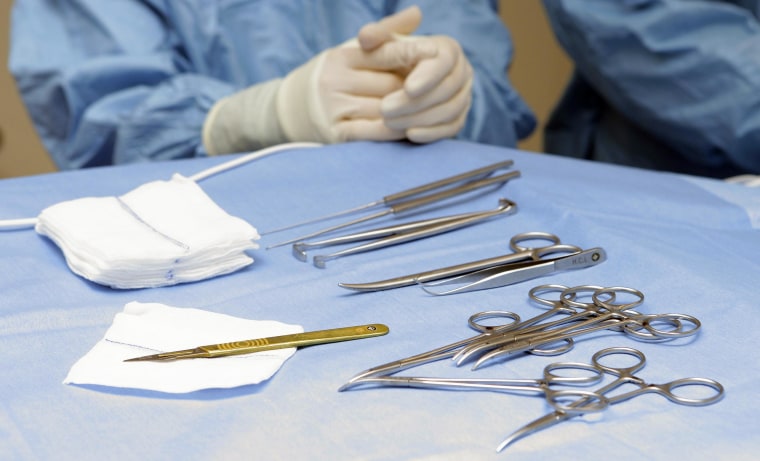Neurosurgeons across the country are refreshing their medical school skills after learning that a second group of patients in six months has been exposed to a rare and fatal brain disorder through insufficiently sterilized surgical equipment.
Preventing cross-contamination from Creutzfeldt-Jakob disease, a terrifying and incurable infection, is part of basic training for brain doctors, who should know that they either need to take extra steps to clean their tools – or use disposable options.
“We expect that all board-certified neurosurgeons would be quite familiar with this,” said Dr. William T. Couldwell, president of the American Association of Neurological Surgeons. “It’s actually part of our curriculum.”
So he said it’s very unusual to hear this week that 18 patients at Novant Health Forsyth Medical Center in Winston-Salem, N.C., have been warned that they may have been exposed to CJD through surgery in January.
And it’s even more surprising that the case follows reports last fall that 15 patients in three New England states learned that they, too, could be at risk for the disease that can take years to show up before ultimately killing its victims.
“It’s extremely rare,” Couldwell said. “The likelihood of passing this along even with routine sterilization is pretty low.”
In both incidents, hospital officials said the initial neurosurgery patients turned out to have sporadic CJD, which occurs spontaneously. It’s not related to the variant form of CJD that causes a human form of “mad cow disease” and is associated with eating infected beef.
All forms of CJD are caused by misfolded prions, proteins that transform from healthy to infected cells and spark a chain reaction of disease, experts say. CJD is very rare, causing about one death per million people each year worldwide and about 300 each year in the United States, according to the Centers for Disease Control and Prevention.
In North Carolina, hospital officials said the patient had neurological symptoms that meant there was reason to suspect CJD and to use enhanced sterilization procedures.
“The extra precautions should have been taken, but were not,” said Caryn Klebba, a spokeswoman for Novant Health.
Lab tests subsequently confirmed that the patient did have CJD.
“The extra precautions should have been taken, but were not.”
In the New England case, doctors at Catholic Medical Center in Manchester, N.H., didn’t realize that the initial patient was at risk for CJD until symptoms appeared weeks later. So far, none of the patients warned about CJD last fall has shown any symptoms or other problems, state health officials said.
But Couldwell, who is chairman of the neurosurgery department at the University of Utah, said many hospitals, including his own, have turned to disposable surgical tools when dealing with suspected or confirmed CJD, just to be safe.
“I think it takes away all question,” said Couldwell. “Many hospitals are taking on the more stringent and expensive method of using disposables to take away the risk.”
Trouble is, it can be quite costly to toss trays of disposable drills, scissors, forceps and needle drivers valued at thousands of dollars, Couldwell said. Infectious disease experts, including the CDC, say that either enhanced sterilization or using disposable tools can prevent transmission of CJD.
Part of the problem is that CJD is so rare that some doctors, including neurosurgeons, don’t think of it early enough, said Florence Kranitz, president of the CJD Foundation, an advocacy group.
“I think it’s just a simple precaution,” said Kranitz, who lost her husband to the disease. “If it is CJD, they’re supposed to wash down the surgical theater, they’re supposed to take precautions with everything in that room.”
